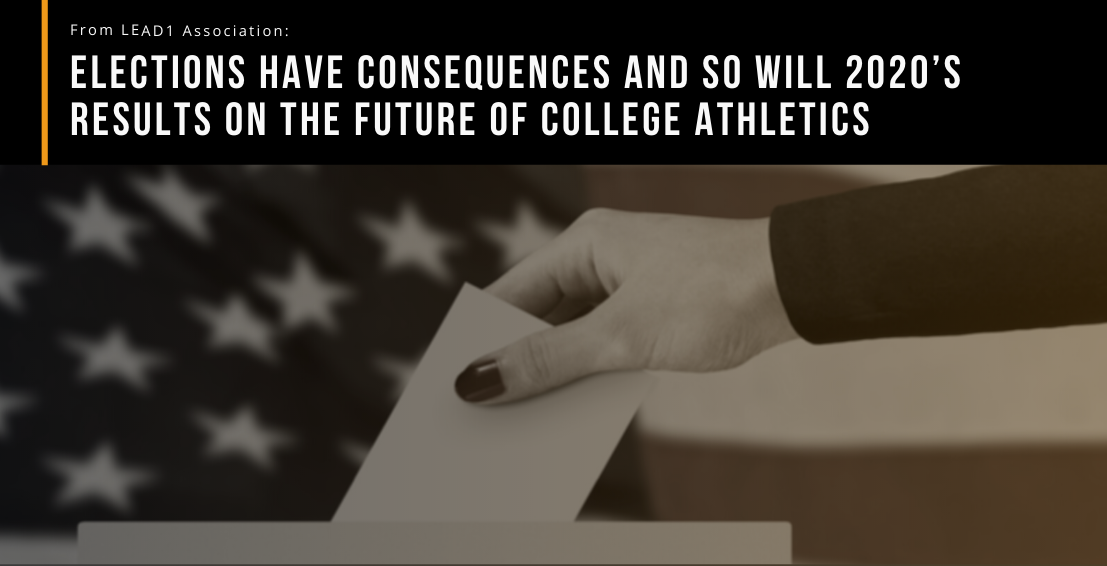In 1985, Tom McMillen, currently the President and CEO of LEAD1 Association (“LEAD1”), announced his candidacy for the United States House of Representatives (House), while playing professional basketball for the Washington Bullets. Prior to that, no other professional athlete in American sports had ever campaigned while playing professional games.
By the following year, in May 1986, McMillen easily won his congressional district election’s primary. November of that year, however, was a much different story. On election night, at around 10 p.m. EST, Dan Rather, the former CBS national evening news anchor, called the race for McMillen’s opponent, Robert Neall. But, by 11:30 p.m., additional votes had come in, with McMillen grabbing a 1,200 vote lead with approximately 10,000 absentee ballots still to be counted. During the next three weeks, McMillen’s lead shrank daily as most absentee voters were Republican. But, by just 428 votes, McMillen was ultimately declared the winner in the closest House race that year.
“Here is the big point…your vote matters,” said McMillen. “On election night I worked the polls shaking hands until closing. Those few extra hours of shaking hands might have been the difference. If I changed 214 votes by shaking voter’s hands, that was the difference in the race.”
Fast forward to this past week’s election – one of the highest voter turnout rates in U.S. election history. College sports played its role in the record voter turnout.
In mid-September, for example, the NCAA approved civic engagement legislation that prohibits practices, competition, and other countable athletically related activities on the first Tuesday after November 1st every year, including Election Day.
LEAD1 institutions also took action. The entire University of Maryland men’s basketball team, McMillen’s alma matter, registered to vote. The University of Oregon created a “Keep it 100” program, which resulted in the entire University of Oregon athletic department’s student–athletes registering to vote. Hundreds of student-athletes used their platforms to encourage their followers to vote on social media. And the University of Wisconsin’s women’s volleyball team actually worked the election polls.
These efforts will not only impact the broader societal issues that our country faces, but also, potentially, the future model of intercollegiate athletics in America. Most notably, a group of U.S. senators have planned to introduce a “college bill of rights” bill that would expand student-athlete benefits beyond just name, image, and likeness (NIL). Vice President-elect Kamala Harris has also announced her support for a strong student-athletes bill, which would include revenue-sharing, safety and wellness standards, improved health benefits, no transfer restrictions, and better educational outcomes. On the other sideline, Republicans seek to pass NIL-focused legislation, with some guardrails, favored by the NCAA and conferences.
While the Senate will not likely be decided until the conclusion of potential runoff elections in 2021, coupled with COVID-19 relief being the primary focus of Congress, the prospects of any federal action on college sports in 2020 remain a challenge. Even if the Republicans retain control of the Senate, any NIL legislation would still need to be very heavy in student-athletes rights in order to gain support from Democrats.
President-elect Joe Biden, may also want to weigh in on the legislation. “I have known Joe (Biden) since 1973 and he is a big college sports fan,” said McMillen. “In fact, Joe and I talked at the NCAA Final Four several years ago when he was there to support his Syracuse Orange.”
There are also approximately 30 states that are considering low regulation NIL legislation. In fact, legislation has already been enacted in California, Colorado, Florida, Nebraska, and New Jersey. If Congress fails to act by July, 1, 2021, the Florida NIL law would go into effect with few NIL restrictions. That would likely lead other states to seek to pass similar legislation so that Florida institutions would not have a recruiting advantage. It is also possible that Congress could pass a moratorium that essentially hits the pause button on state laws. That possibility, however, is unlikely given that 2021 is a year of redistricting (where every 10 years, all U.S. states redraw their legislative and congressional districts) so Members of Congress will be leery of pressuring the state legislators who may be redrawing their districts.
In addition to the presidential election, Representative Donna Shalala’s narrow loss in Florida’s 27th Congressional District will also impact college sports. In December 2019, Shalala had introduced legislation that would create a Congressional Commission to examine a wide-range of issues in intercollegiate athletics such as athletes’ rights, anti-trust issues, and academic integrity. It is also worth noting that former Auburn football coach, Tommy Tuberville, defeated Democratic Sen. Doug Jones’ reelection bid in Alabama.
As McMillen witnessed first-hand 35 years ago, showing up to the polls can change outcomes in elections, and this past week, the college sports community fulfilled its civic duty in the record voter turnout. While the Democrats winning the Senate might be a long-shot, depending on the possible runoff elections, this year’s election results still may lead to some of the most transformational outcomes in college sports history.






